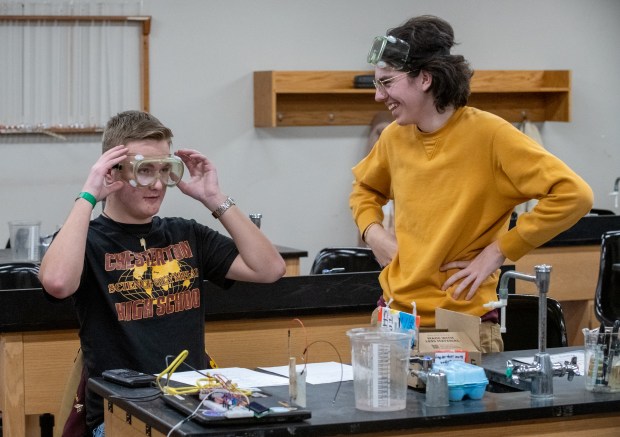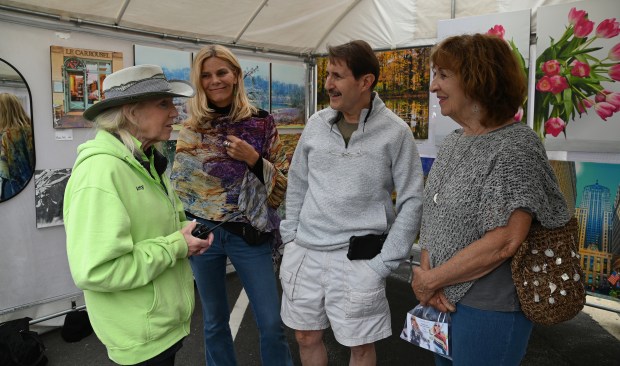Antonio went rogue.
The wily robot’s handler, Chesterton High School Senior Logan Snyder, announced the frustrating-yet-hilarious turn of events to his Science Olympiad teammates right after the event. In a perfect world, Antonio would’ve completed the maze full of obstacles on his way to Point B from Point A in the prescribed amount of time for the Robot Tour event, Logan explained during the Science Olympiad Regional at Indiana University Northwest February 17.
But he apparently had other plans.
“He just didn’t want to listen to anything,” Logan said, chuckling. “He definitely didn’t like the surface he was on, but it could’ve also been a line of code that wasn’t correct. I need to do a lot more testing for the things I hadn’t accounted for.”
Sixteen schools with 19 teams of 15 students showed up for the IUN Regional, Tournament Director Harold Olivey said between tallying up the scores. This year, there were 34 events and three trial events for the kids to test their mettle.
Trial events don’t count toward a team’s overall score, Olivey said, and typically, a team’s alternates are the ones who compete in them. But their role is just as important, because they’re the ones who show tournament organizers whether the trial events — this year, they were Botany, Engineer CAB and Solar Power — are feasible to add as categories.
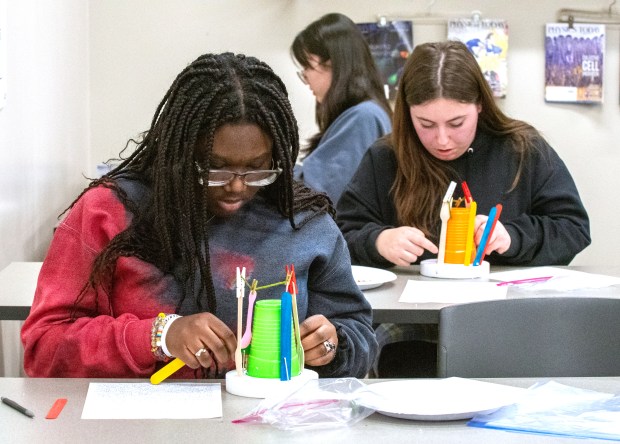
“We have to make sure the events work with the different age groups,” said Ken Schoon, professor emeritus for IUN.
Schoon said he remembers the Science Fairs in which he competed when he was a kid, and at least at the individual school level, the students competed against each other. With Science Olympiad and the events leading up to Nationals, however, the students work together and, just as important, they cheer each other on, he said.
Science Olympiad Board member Jamie Lies, also a teacher in Crown Point, took the sentiment one step further and said now, schools are recognizing academic teams more, too. That’s crucial, she said, because these are the kids who’re leading the world into the future.
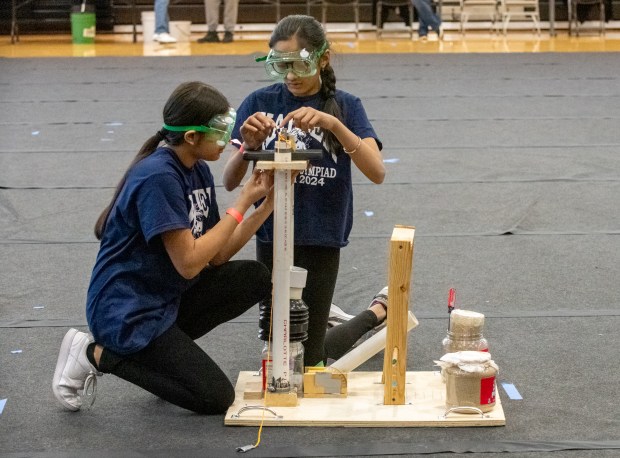
“(Science Olympiad and other academic teams) need to be supported just as much as the athletic teams; why can’t we foster these kids instead of making them feel singled out?” Lies said. “In Crown Point, we have Fall and Spring pep rallies, and they’ve now started including those teams in the rallies and touting their accomplishments during the morning announcements, but many schools don’t.”
Snyder, who’s heading to Purdue University’s Polytechnic Institute in the fall, said that participating in Science Olympiad for five years has shown him that he loves designing things via computer. But also, it’s taught him a broader lesson about science itself.
“(Science) is never a complete process; there’s always room to improve,” he said.
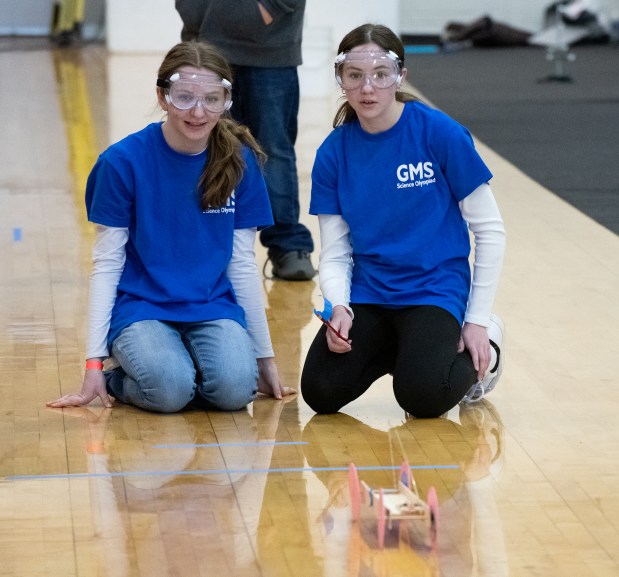
Kahler Middle School teammates Pari Patel, 13, and Krupa Patel, 12, were having a little more fun with their event. Called Air Trajectory, the two girls built an air chamber guided by weights and were then tasked with launching a ball a prescribed distance.
Their first target didn’t work as well, but the second, longer distance, they got closer to where they needed. They both agreed, however, that they weren’t as concerned with all that.
“We picked Air Trajectory because it involves shooting stuff in school,” Krupa said.
For team results from the IUN Science Olympiad Regional, log onto northwest.iu.edu/science-olympiad.
Michelle L. Quinn is a freelance reporter for the Post-Tribune.


